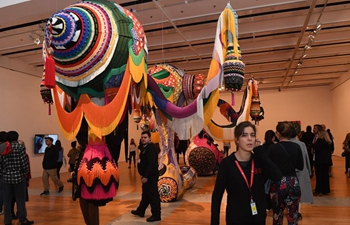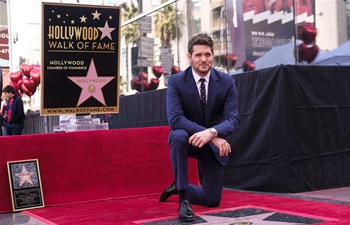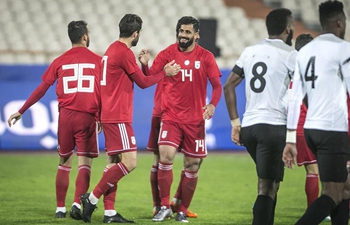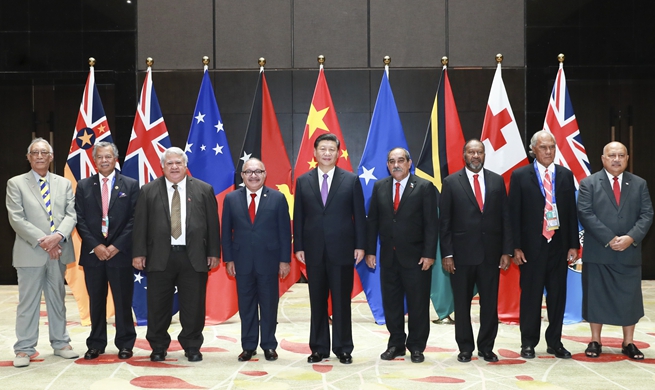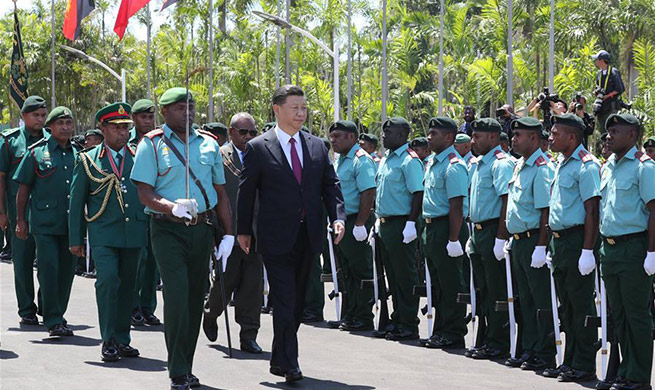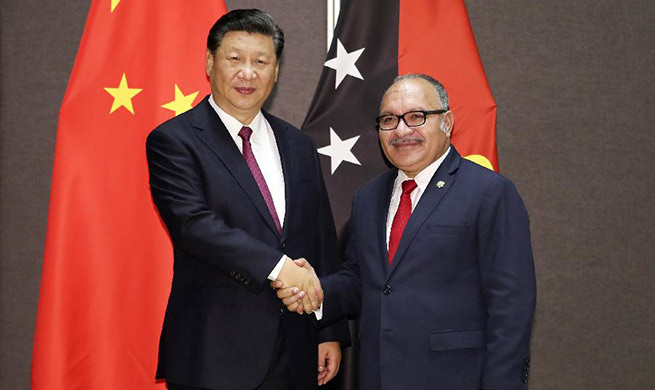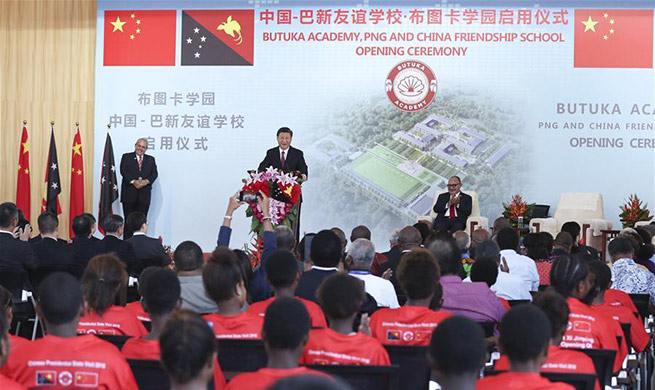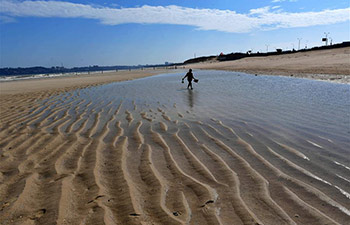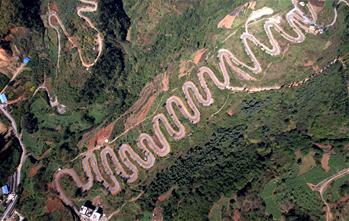ISTANBUL, Nov. 17 (Xinhua) -- Intractable issues in foreign relations are lingering, but Turkey is seeing improvement in some fronts after the introduction of a presidential system in July.
For analysts who spoke to Xinhua, the new system has brought about no shift in Turkey's foreign policy, yet they differed on the country's performance under the watch of a more powerful President Recep Tayyip Erdogan.
MAJOR PROBLEMS NOT SETTLED
If the West is careful to entertain good ties with Ankara, it is mainly because it needs Turkish help in reshaping the Middle East, observed Haldun Solmazturk, a security and foreign policy analyst.
"None of the major problems Turkey has with the U.S. and the EU have so far been settled," said Solmazturk, who chairs the Incek debates at the Ankara-based 21st Century Turkey Institute.
Turkey officially switched from a parliamentarian system to an executive presidency as Erdogan took office in early July after winning the presidential election the previous month as the leader of the Justice and Development Party, which has been in power since 2002.
Ties between Ankara and Washington, two NATO allies, were highly strained until recently, but relations seem to be on the path of normalization after a Turkish court released a U.S. pastor from prison last month.
In an apparent bid to further improve ties with Ankara, Washington announced last week rewards for information on three top members of the Kurdistan Workers' Party (PKK), an armed Kurdish organization fighting against the Turkish state.
For Mesut Hakki Casin, a security and foreign policy analyst who teaches at Istanbul's Istinye University, Turkey's performance in foreign policy has been largely good since the adoption of the executive presidency.
"Decisions can be taken faster in a presidential system," Casin said, arguing that Ankara has successfully dealt with various crises in diplomacy since June.
There has been no change in Turkey-NATO ties, he noted, underlining the importance the military bloc attaches to Turkey.
NATO Secretary General Jens Stoltenberg said last week that it was "impossible to envisage the defences of Europe" without Turkey, calling Ankara a key ally in fighting against terrorism and instability in Syria and Iraq.
Turkey's foreign policy is now increasingly shaped and conducted by a small group of advisors in the President's Office, said Ilhan Uzgel, a foreign relations analyst who taught at Ankara University.
Both Uzgel and Solmazturk think that the part played traditionally by the Ministry of Foreign Affairs and the General Staff in shaping foreign policy has been much eroded in the last couple of years.
"Turkey is like a ship caught in a strong storm," argued Solmazturk.
NO CHANGE IN ORIENTATION
None of the three analysts have seen any change in Turkish foreign policy orientation after the new political system was ushered in.
Erdogan had already had the habit of conducting foreign relations with a small group of advisors, based largely on his personal choices even before the switch to the presidential system, said Solmazturk.
A Security and Foreign Policy Council with advisory powers was established following the June elections within the presidential office. However, its 10-odd members were only appointed early last month.
The reason why Ankara-Washington ties have not soured enough is that the U.S. wants to keep Turkey in check as it still needs Turkish tolerance toward the Syrian Kurdish militia known as the People's Protection Units (YPG), maintained Solmazturk.
Turkey is highly vexed by the U.S. support for the YPG and its unwillingness to hand over a Turkish cleric accused of masterminding a coup bid in the country in July 2016.
Despite Ankara's harsh criticism, the U.S. has continued to arm the YPG, which Ankara sees as the Syrian offshoot of the PKK.
"As to the EU, it needs Turkey's help regarding the refugee issue," said Solmazturk.
A quartet summit on Syria, hosted by Erdogan in Istanbul last month, was widely praised in local media as Ankara's success in foreign policy.
What made the summit particularly noteworthy was the presence of German Chancellor Angela Merkel and French President Emmanuel Macron along with Erdogan and his Russian counterpart Vladimir Putin.
"The fact that some European leaders were also present at the summit indicates that Turkey has, other than Russia, also Europe at its side amid differences with Washington," said Casin.
"Turkey pursues a balanced policy just as the case during the World War II," he added.
Since the so-called Arab Spring, Turkish ties with many of the countries in the Middle East have soured. Ties with Syria, where Ankara still backs so-called moderate rebel groups, and Egypt remain highly troubled to this day.
Both Solmazturk and Casin agreed that one area of failure in Turkish foreign policy is the Libya case.
Earlier this week, a Turkish delegation headed by Vice President Fuat Oktay withdrew from a conference on Libya in Italy due apparently to opposition by some of the warring factions in the North African state.
